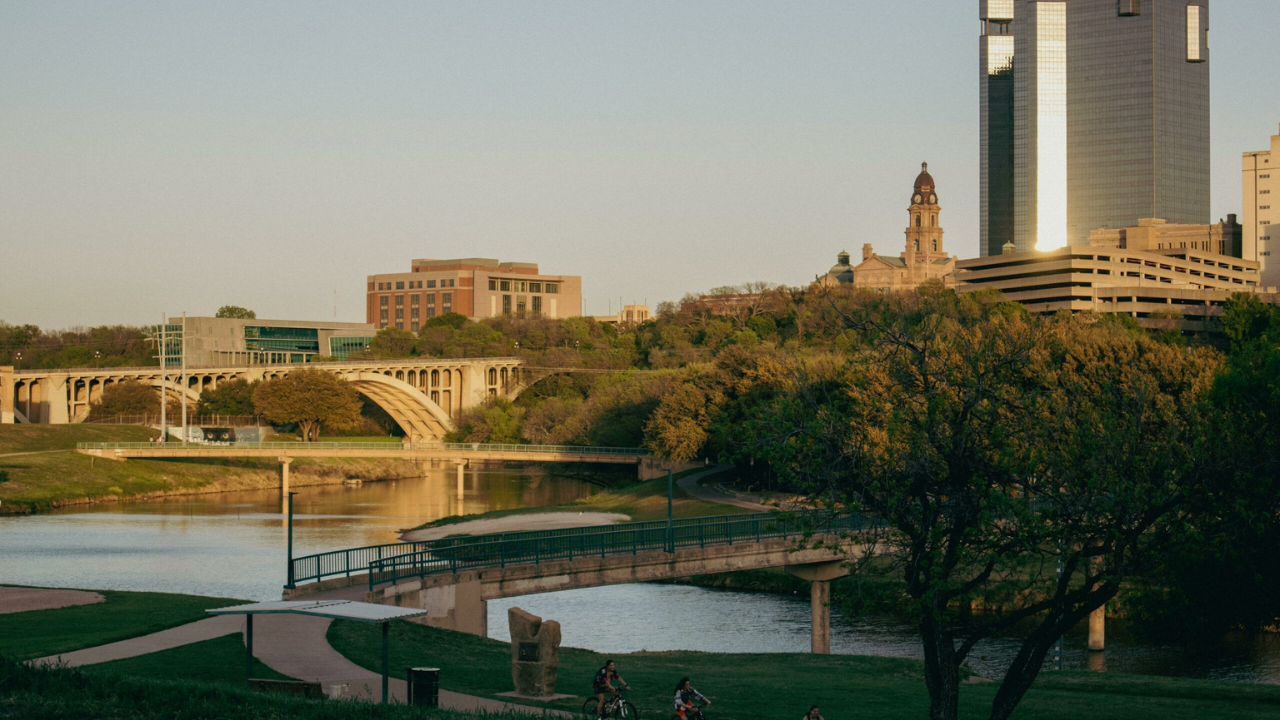Something’s changing in Fort Worth. It’s not loud or flashy, and you won’t find it on a billboard. But it’s there—in the quiet of a sunrise walk along the Trinity Trails, in the hum of conversation at a local gallery opening, in the way neighbors check in on each other after a hard week.
Fort Worth is finding its balance. And in a time when mental wellness is more important than ever, that balance is helping people heal in ways that are both personal and profound.
The City Behind the Shift
For a long time, Fort Worth lived in the shadow of its bigger, flashier neighbor to the east. But while Dallas chased skyscrapers and status, Fort Worth was busy building something else—roots. The city has always had a slower pace, and a grittier charm. But now it’s becoming something more: a haven for people looking to live with intention.
Part of that shift comes from the way Fort Worth treats space. This is a city that makes
room for nature, for creativity, and for community. Those three things, it turns out, are more than just nice to have. They’re medicine. And in Fort Worth, they’re everywhere.
Nature as a Daily Practice
The Trinity River snakes through the heart of the city, not as a dividing line but as a living thread that pulls people into the outdoors. The Trinity Trails system stretches for more than 100 miles, offering residents and visitors alike a place to run, ride, breathe, or simply be.
For people in recovery or navigating mental health challenges, that kind of access to open space isn’t just a perk. It’s a lifeline. Regular time in nature has been shown to lower stress levels, improve mood, and strengthen emotional regulation. But beyond the data, it just feels good.
In Fort Worth, it’s not unusual to see a group of women in hiking boots and wide-brimmed hats doing a walking meditation at sunrise. Or a dad and daughter fishing in silence on a Sunday morning. Here, nature is more than a backdrop. It’s part of the rhythm of life.
A City That Breathes Art
Fort Worth’s art scene is as expansive as its skies. From the world-class collections at the Modern Art Museum and the Kimbell to the rotating street art in the Foundry District, the city pulses with creativity.
But this isn’t art behind velvet ropes. It’s accessible, immersive, and woven into daily life. That’s important because creative expression is another proven pathway to mental wellness. Whether you’re sketching in a journal, dancing to live music, or simply sitting in a gallery soaking in color, art allows for release. Reflection. Reconnection.
For people rebuilding their lives after addiction, these small moments of connection can become the scaffolding for something bigger. They remind us of what it feels like to be inspired, moved, or simply present.
Community That Shows Up
Wellness in Fort Worth isn’t limited to yoga classes or juice bars. It’s in the way this city takes care of its own. Across neighborhoods, grassroots initiatives have sprung up—peer-led support groups, community gardens, sober social clubs, and free mental health workshops hosted in libraries and breweries alike.
There’s a sense that no one is above the work of healing here. Everyone’s got their story. Everyone’s in it together. That’s especially powerful for people who have felt isolated by addiction or depression. Fort Worth’s approach says: you belong. Right now. As you are.
Rehab That Matches the Setting
It’s one thing to have a supportive city. It’s another to have treatment options that truly reflect that environment.
Located right here, these centers stand out not just for their clinical excellence but for how well they mirror the city’s values. Drug rehab in Fort Worth offers personalized and compassionate care. A holistic view of recovery. A deep respect for nature, creativity, and community is part of the healing process.
Clients aren’t treated like problems to be solved. They’re seen as people with unique histories, strengths, and potential. Treatment plans are tailored, integrating evidence-based therapy with activities like mindful movement, expressive arts, and nature outings. It’s a model of recovery that doesn’t separate mental wellness from real life—it weaves them together.
And because the center is embedded in the heart of Fort Worth, clients don’t feel disconnected from the world while they’re healing. They’re part of it. They walk the same trails, visit the same coffee shops, and attend the same community events; they’ll return to post-treatment, only now, with a foundation of tools and support beneath them.
A New Definition of Strength
Fort Worth doesn’t push you to be perfect. It gives you space to be human. And that might be the most healing thing of all.
In a world that often demands constant productivity, Fort Worth offers something else: presence. Slowness. Connection. The chance to be still long enough to feel what needs to be felt—and to move forward when you’re ready.
That’s the kind of environment that makes long-term mental wellness possible. Not because it promises a pain-free life, but because it equips people to handle life’s inevitable challenges with more grace, more tools, and more support.
The Future Is Rooted Here
As mental health becomes more central to the way we think about healthcare, cities like Fort Worth will stand out, not for being the loudest, but for being the most grounded. The most real.
Nature. Art. Community. These aren’t extras. They’re essentials. And in Fort Worth, they’re accessible to anyone ready to show up and begin again.
Whether you’re walking into a therapy session, stepping onto a trail, or sitting in a quiet room filled with color, this city holds space for your healing. And sometimes, that’s all a person needs to take the next step.



